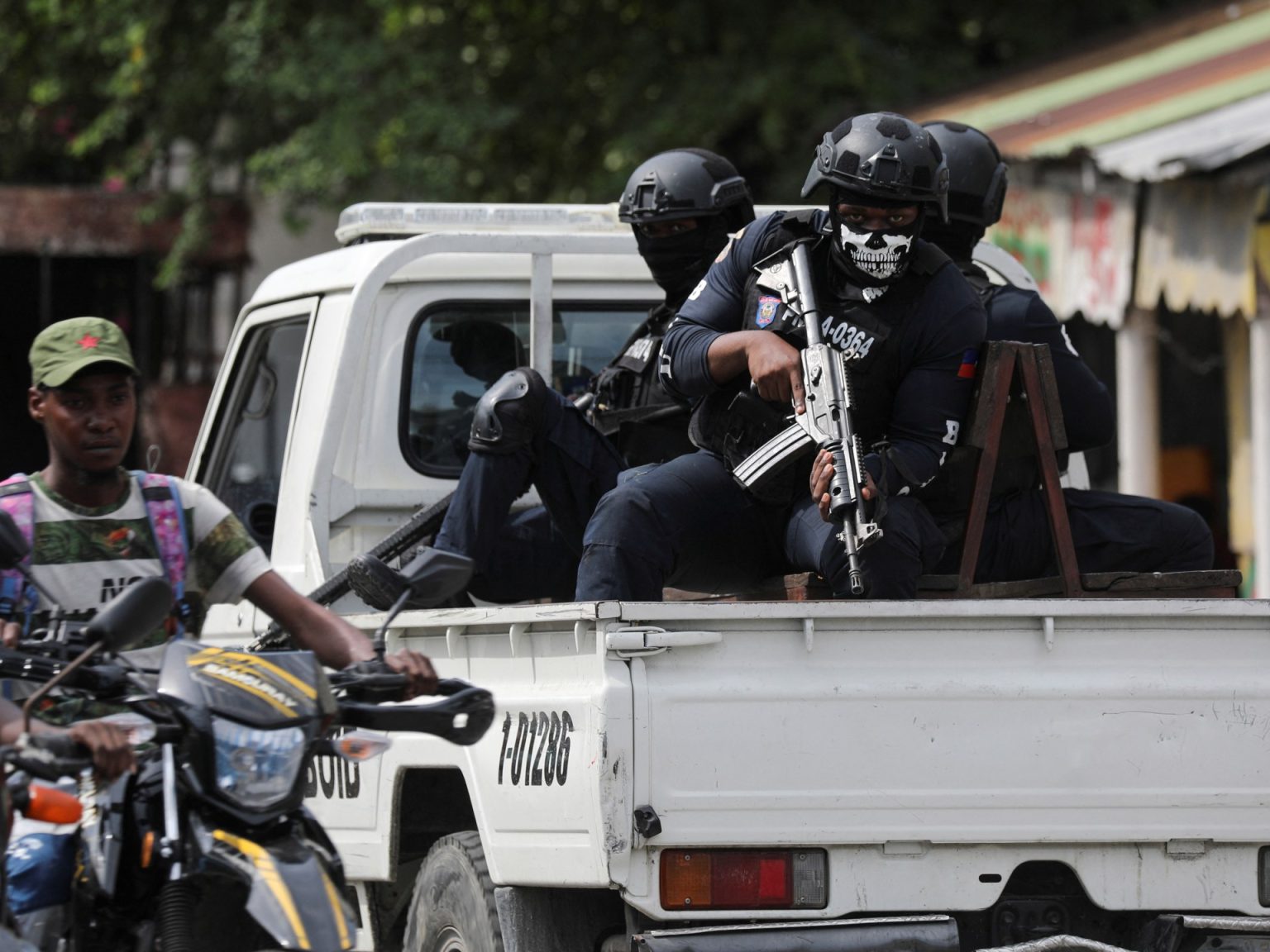Haiti, a nation grappling with profound political and economic instability, has witnessed a dramatic surge in gang violence since the assassination of President Jovenel Moïse in 2021. This escalation has crippled vital services, terrorized civilians, and rendered law enforcement largely ineffective in the face of increasingly powerful armed groups. The latest manifestation of this pervasive violence targeted a group of journalists covering the reopening of the General Hospital, the nation’s largest public medical facility, in Port-au-Prince. Gunmen opened fire on the journalists, resulting in casualties, including the reported deaths of two journalists and a police officer, underscoring the perilous environment in which Haitian citizens and members of the press operate. This attack, claimed by a notorious gang leader, highlights the vulnerability of even essential services and the urgent need for effective intervention to restore order and security.
The attack on the journalists represents a chilling escalation in the ongoing gang violence that has plagued Haiti. It not only underscores the dangers faced by journalists working in this volatile environment but also highlights the broader societal implications of unchecked criminal activity. The targeting of a symbolic event, the reopening of a crucial public hospital, demonstrates the gangs’ blatant disregard for human life and their intent to disrupt any semblance of normalcy and progress in the country. This incident further erodes public trust in the government’s ability to provide security and essential services, deepening the despair and fostering a climate of fear that permeates Haitian society.
The vulnerability of the General Hospital, a vital lifeline for the Haitian population, epitomizes the crippling impact of gang violence on essential services. Its forced closure in March and the subsequent attacks accompanying its attempted reopening demonstrate the extent to which gangs have infiltrated and disrupted even the most fundamental aspects of Haitian life. Healthcare, already facing significant challenges, is now further jeopardized, leaving countless individuals without access to critical medical care. This underscores the urgent need for a comprehensive security strategy to dismantle these criminal networks and ensure the safe and uninterrupted functioning of essential services.
The Haitian authorities, including the transitional presidential council, have condemned the attack and promised accountability. However, past pronouncements have rarely resulted in tangible action, and the government’s capacity to effectively address the escalating gang violence remains severely limited. The pervasive corruption, weak governance, and under-resourced police force have created an environment of impunity, emboldening the gangs and further eroding public trust. The lack of tangible progress in combating gang violence reinforces a cycle of violence and instability, leaving the Haitian population vulnerable and desperate for effective solutions.
The rise of gangs in Haiti is intricately linked to the country’s deep-seated political and economic woes. The assassination of President Moïse further destabilized an already fragile political landscape, creating a power vacuum that armed groups have exploited. The pervasive poverty, lack of economic opportunities, and widespread corruption have created fertile ground for gang recruitment and expansion. These underlying factors must be addressed to effectively combat the root causes of gang violence and build a more stable and secure future for Haiti.
The international community has a crucial role to play in supporting Haiti’s efforts to address the gang crisis. Providing technical assistance, strengthening law enforcement capacity, and supporting initiatives aimed at addressing the underlying socio-economic factors contributing to gang violence are essential. However, any intervention must be carefully considered and implemented in close collaboration with Haitian authorities and civil society to ensure its effectiveness and sustainability. Ultimately, the responsibility for restoring order and security rests with the Haitian government, but it requires sustained and coordinated international support to succeed. The attack on the journalists serves as a stark reminder of the urgent need for action to address the escalating crisis and prevent further loss of life and suffering in Haiti.

